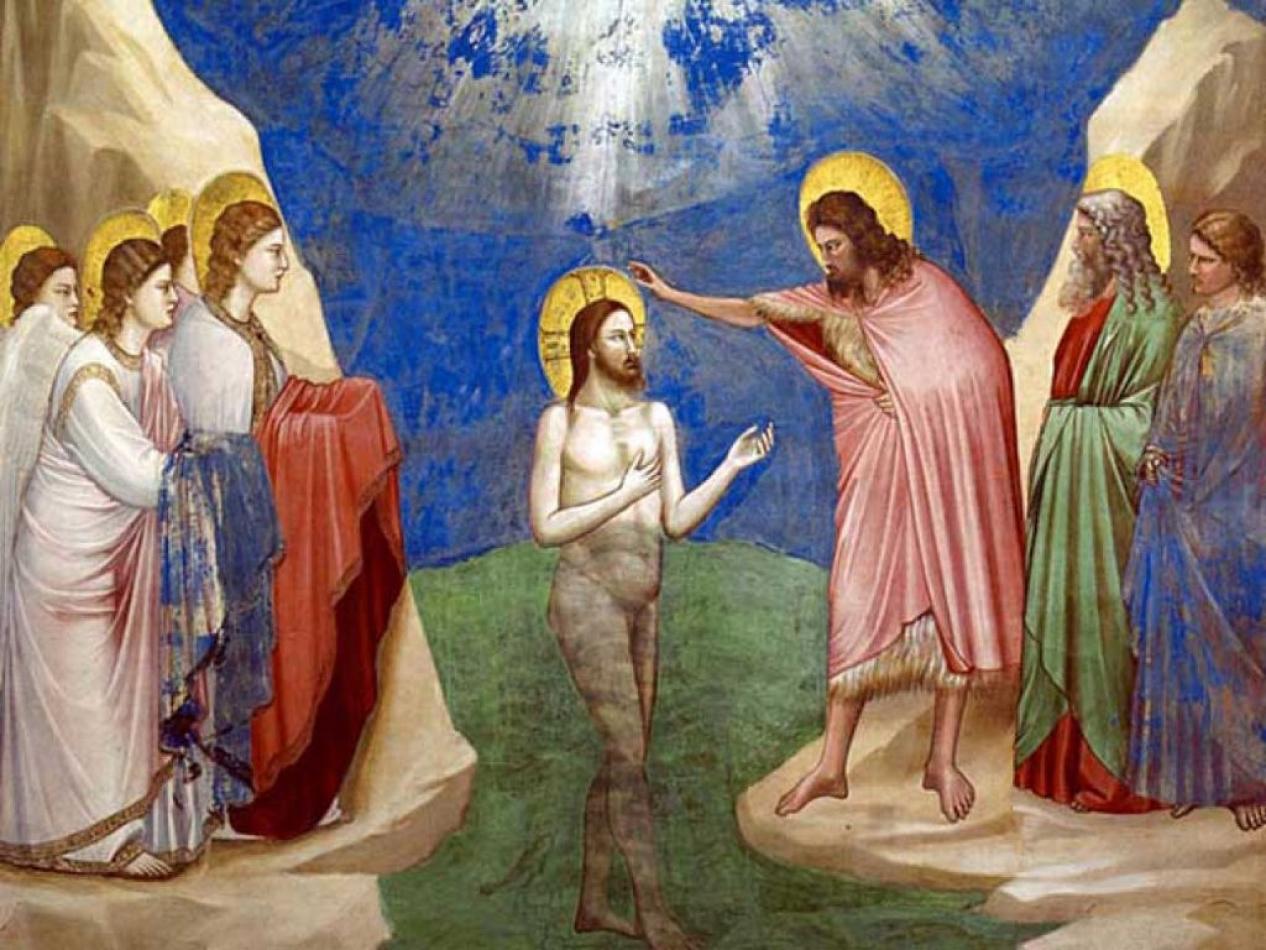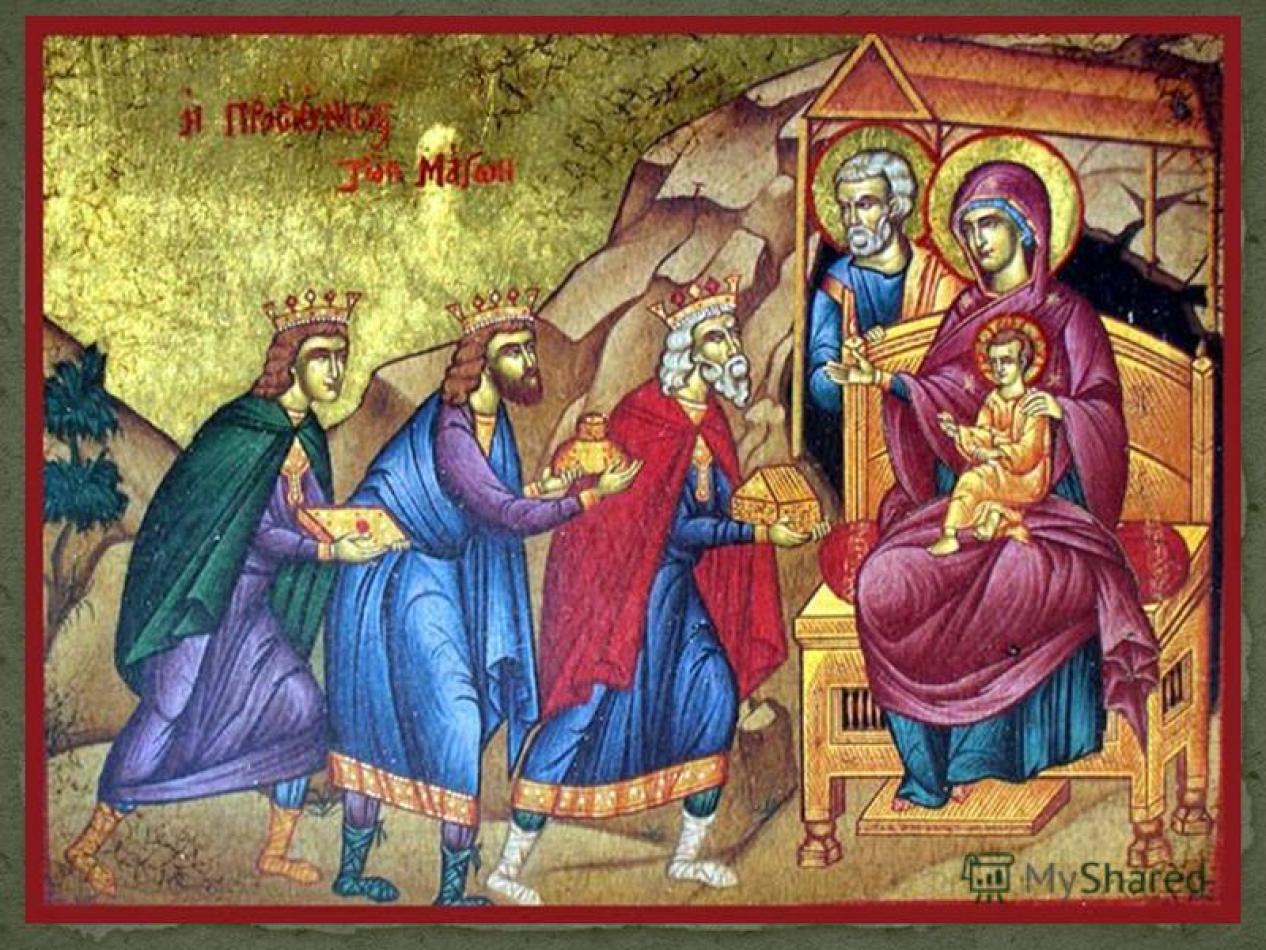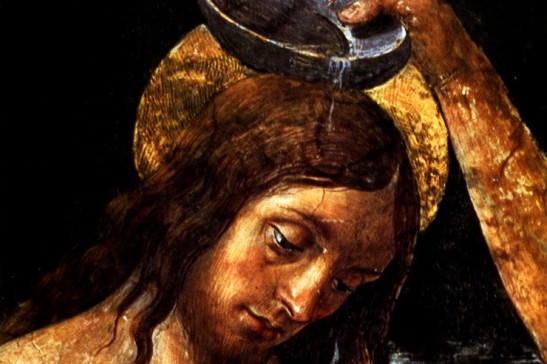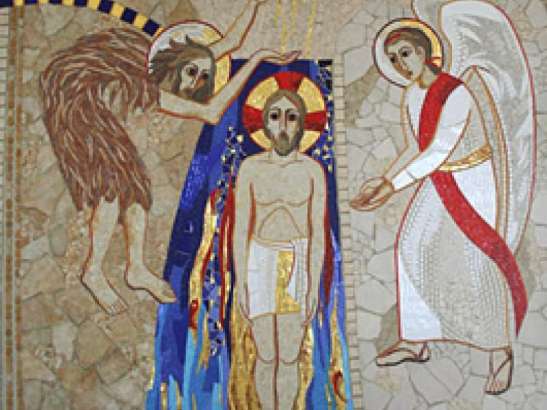Daniel Comboni
Comboni Missionaries
Institutional area
Other links
Newsletter
The meeting with John the Baptist was for Jesus an experience that turned his life around. After the baptism in the Jordan, Jesus doesn’t return again to his work in Nazareth, nor does he follow the Baptist’s movement. His life now centers on a single objective: to cry out to everyone the Good News of a God who wants to save humanity.
Matthew 3:13-17
PERSONAL EXPERIENCE
The meeting with John the Baptist was for Jesus an experience that turned his life around. After the baptism in the Jordan, Jesus doesn’t return again to his work in Nazareth, nor does he follow the Baptist’s movement. His life now centers on a single objective: to cry out to everyone the Good News of a God who wants to save humanity.
But what transforms Jesus’ path aren’t the words he hears from the lips of the Baptist nor the purifying rite of baptism. Jesus goes through something more profound. He feels himself inundated by the Spirit of the Father. He recognizes himself as the Son of God. His life will consist from then on in radiating and spreading that unfathomable love of a God who is Father.
This experience of Jesus also contains a meaning for us. Faith is a personal journey that each one of us must traverse. It’s very important, without doubt, that we have listened to our parents and teachers from childhood. It’s important that we heard priests and preachers. But in the end we always must ask ourselves one question: in whom do I believe? Do I believe in God or do I believe in those who speak to me about God?
We mustn’t forget that faith is always a personal experience that can’t be replaced by a blind obedience to what others tell us. From the outside they can direct us toward faith, but I myself am the one who must open myself to God confidently. That’s why faith never consists in just accepting a determined collection of formulas.
To be a believer doesn’t primarily depend on doctrinal content that gets put together in a catechism. All that is undoubtedly very important for configuring our Christian vision of existence. But before that and giving meaning to all that, is the interior dynamism that from within brings us to love, trust and hope always in the God revealed in Jesus Christ.
Nor is faith a capital that we receive in baptism and which we can later dispose of tranquilly. It’s not something acquired in ownership forever. To be a believer is to live permanently listening to God incarnate in Jesus, learning to live day by day more fully and more freely.
This faith isn’t made only of certitudes. Through our life, the believer lives all too often in obscurity. As was said by that great theologian that was Romano Guardini, «faith is having enough light to endure the obscurities». Faith is made up, above all, of trustworthiness. The true believer knows how to believe in the obscurity what she has seen in moments of light. At all times she keeps looking for that God who is beyond all our formulas, both clear and obscure. Henri de Lubac wrote that «the ideas that we make for ourselves about God are like the waves of the sea, over which the swimmer supports himself in order to overcome them». What’s decisive is faithfulness to the God who is shown to us in God’s Son Jesus Christ.
José Antonio Pagola
Translator: Fr. Jay VonHandorf
https://www.feadulta.com
He wanted to rise from the abyss
At the time of Jesus many religious sects practiced baptism. The rite had many meanings, but one was especially important: the immersion indicated the death of an individual (his past life was wiped-out, almost swept away by the current) and with the emersion came the birth of a new person to whom, naturally, a new name was given.
John was doing this ceremony to welcome those who would be his disciples. He baptized whoever decided to change his life to prepare oneself for the coming of the Messiah, which was announced as imminent. The first condition for baptism was to recognize oneself a sinner. It is for this that the Pharisees and Sadducees, who thought themselves righteous and without sin, did not feel the need (Lk 7:30).
If that was the meaning of John’s baptism, the reason why Jesus received it is not well understood. He had no need to change his life and his actions could suggest the idea that John was superior to him. To clarify this difficulty, much felt among the early Christians, Matthew introduces in the episode the dialogue between the Baptist, who refused to baptize one superior to him, and Jesus who insists that “all righteousness” be fulfilled. John must adapt himself and collaborate in the implementation of the plan of salvation of God (and this is “justice”), even if it presents mysterious and incomprehensible aspects to him (vv. 14-15). Even a spiritually mature person like John the Baptist meets difficulties to accept the Messiah of God. He remains surprised when he sees the holy one, the righteous one close to those sinners who, according to human logic, should be annihilated.
It is the new and puzzling justice of God. It is the righteousness of one who desires “that all people should be saved” (1Tim 2:4). The author of the Letter to the Hebrews will call this consoling truth in poignant terms: Christ is not ashamed to call “brothers” the sinful men (Heb 2:11).
It is an invitation addressed to today’s Christian communities to change those attitudes which show arrogance, conceit, and self-satisfaction for one’s own righteousness; and correct the language that may lead to the idea of judging, condemning, and marginalizing those who make mistakes or are doing it.
After this original introduction, Matthew, like Mark and Luke, describes the next scene with three images: the opening of the heavens, the dove, and the voice from heaven. He is not recalling remarkable facts he personally witnessed. He uses images well known to his readers, and the meaning is not difficult for us to grasp.
Let’s start with “the heavens opened.”
This is not a matter of meteorological information. It is not that suddenly a luminous ray from the sun was filtered through the thick and dark clouds. If this were the case, Matthew would have reported to us a trivial detail that has of no interest to our faith. He is explicitly alluding to a text of the Old Testament, a passage from the prophet Isaiah that needs to be recalled.
In the last centuries before Christ, the people of Israel had the feeling that heaven was closed. Outraged by the sins and unfaithfulness of his people, God had withdrawn into his world. He had stopped sending prophets and seemed to have broken all dialogue with people. The pious Israelites were wondering: when will this distressing silence end? Will the Lord not speak to us again? Will He no longer show his serene face, as in ancient times? They called upon him thus: “O Lord, you are our Father. We are the clay and you are our potter; we are the work of your hands. Do not let your anger go too far or think of our sins forever; do not remember our iniquity forever. Oh, that you would rend the heavens and come down!” (Is 64:7-8; 63:19).
Affirming that with the beginning of the public life of Jesus, the heavens are torn, Matthew gives the readers a surprising piece of news. God has heard the prayer of his people. He has opened heaven and will never close it again. The enmity between heaven and earth is forever ended. The door of the house of the Father will remain eternally wide open to welcome every child who wishes to enter. No one will be excluded.
The second image is that of “the dove.”
Matthew does not say that a dove descended from heaven. This would also be a trivial and superfluous detail. He wrote that Jesus saw the Spirit of God descending from heaven “like a dove and rest upon him.”
The Baptist certainly remembers that from heaven it is not just the manna that came down, but also the destructive water of the flood (Gen 7:12), and the fire and brimstone that incinerated Sodom and Gomorrah (Gen 19:24). Probably one expects the coming of the Spirit as a consuming fire for the wicked. The Spirit, like a dove, rests upon Jesus: It is all tenderness, affection, and kindness. Moved by the Spirit, Jesus will approach sinners always with the sweetness and the amiability of the dove.
The dove was also the symbol of attachment to its nest. If the evangelist has this recall in mind, then he wants to tell us that the Spirit seeks Jesus as a dove seeks its nest. Jesus is the temple where the Spirit finds its permanent home.
The third image: “the voice from heaven.”
It was an expression often used by the rabbis when they wanted to attribute a statement to God. In our story, it is intended to define, in the name of God, the identity of Jesus.
The passage was composed after the events of Easter to respond to the questions raised among the disciples of the ignominious death of the Master. In their eyes, he seemed to be a loser, an outcast and abandoned by the Lord. His enemies, guardians, and guarantors of the purity of the faith of Israel had condemned him as a blasphemer. The disturbing question was: has God perhaps shared this judgment?
To the Christians of his community, Matthew reports the judgment of the Lord with a phrase that alludes to three Old Testament texts.
– This is my son. The reference is to Psalm 2:7. In the Semitic culture, the term ‘son’ did not indicate only the biological generation. It also implied the affirmation of a similarity. Presenting Jesus as his son, God guarantees to recognize him, in his words, in his works and especially in his supreme act of love: the gift of life. Who wants to know the Father has only to contemplate this child.
– The beloved. This refers to the trial Abraham was subjected to. He was asked to offer his only and well-beloved son, Isaac (Gen 22:2, 12, 16). By applying this title to Jesus, God invites us not to consider him a king or a prophet like the others. He, like Isaac, is the only, the beloved son.
– In whom I am well pleased. We have read this expression in the first verse of today’s reading (Is 42:1). God declares that Jesus is the servant of whom the prophet spoke. He is the one sent to establish the law and justice in the world. To fulfill this mission, he will offer his life.
The voice from heaven gives limelight to the judgment pronounced by people. It also denies the Messianic expectations of the people of Israel that could not think of a humiliated, beaten and executed messiah. In the house of the high priest, Peter swore of not knowing that man. He was basically telling the truth. He could not recognize in him the messiah. He did not correspond in any way to the expected savior. The way in which God has fulfilled his promises has been a surprise for everyone, including the Baptist.
Today’s passage, we find a new call to the parallelism Matthew made between Moses and Jesus. Moses received the Spirit of God when, along with all the people, came out of the waters of the Red Sea. That divine power enabled him to lead the Israelites through the wilderness to the Promised Land. Jesus also received the Spirit after getting out of the water, then with the people enslaved by evil, he undertook the path towards freedom.
Fernando Armellini
Italian missionary and biblical scholar
https://sundaycommentaries.wordpress.com






